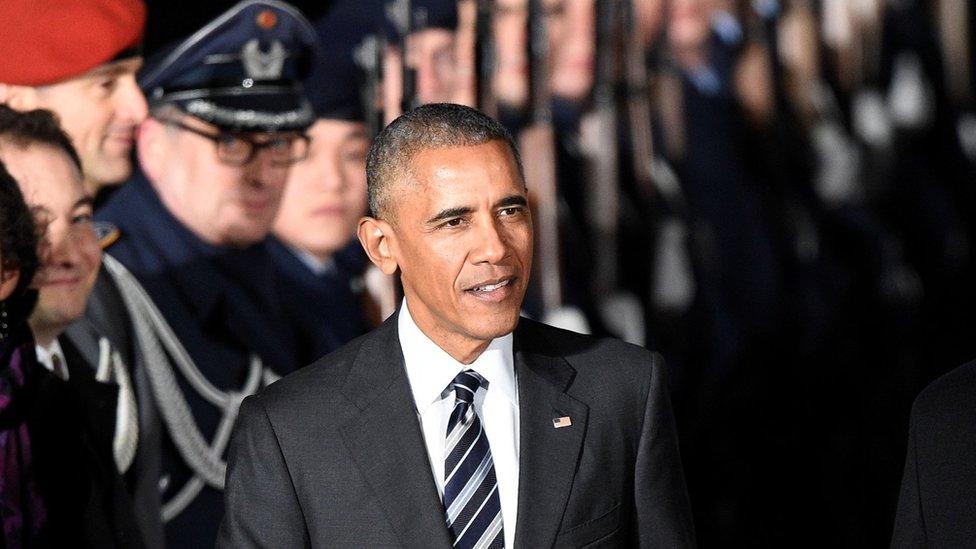Obama defends globalisation on Germany visit
- Published

Mr Obama arrived in Berlin following talks with Greek leaders in Athens
US President Barack Obama has made a strong defence of globalisation as he arrived in Germany on his final visit to Europe before leaving office.
In a joint article, Mr Obama and German Chancellor Angela Merkel said that with the global economy developing faster than ever, co-operation was vital.
Mr Obama arrived in Germany from Athens where he had warned of threats to modern democracy.
He is seeking to calm unease following the election of Donald Trump.
In the article in the (in German), he and Mrs Merkel made a strong case for international trade in contrast to Mr Trump's more protectionist stance.
Trump's rude awakening for Germany
Trump and trade: A radical agenda?
"There will be no return to a world before globalisation," they wrote.
"We owe it to our companies and our citizens, indeed to the entire world community, to broaden and deepen our co-operation."
The two leaders voiced support for the proposed Trans-Atlantic Trade and Investment Partnership (TTIP) between the US and the EU.
By contrast, Mr Trump is a fierce critic of global free trade agreements and welcomed the UK's decision in June to leave the EU.
Mr Obama visited some of Athens' most famous sites, including the Parthenon
In Athens, Mr Obama acknowledged that globalisation had created a "sense of injustice" and a "course correction" was needed to address growing inequality.
"When we see people, global elites, wealthy corporations seemingly living by a different set of rules, avoiding taxes, manipulating loopholes... this feeds a profound sense of injustice," he told Greek leaders.
Mr Obama's visit to Greece was marked by street protests by leftist groups which denounced US "imperialism". Police used tear gas against about 2,500 demonstrators who had tried to reach the city centre on Tuesday.
The US president will stay in Germany until Friday and then head to Peru.